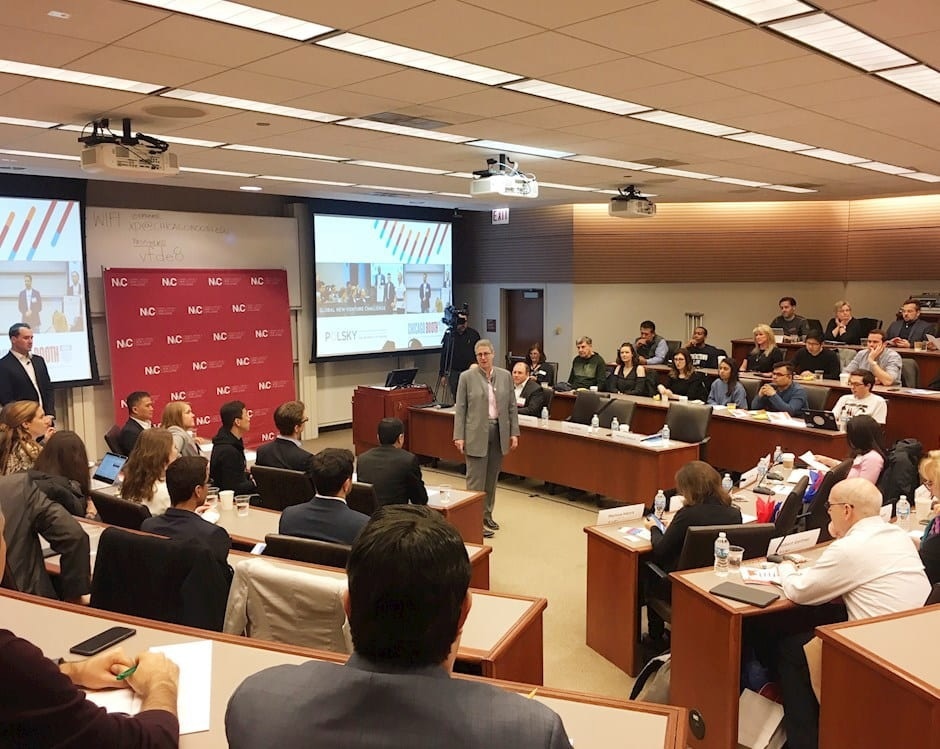Quantum computing was first proposed in the 1980s by Richard Feynman and Yuri Manin. Quantum technology seeks to harness the laws of quantum mechanics. Aside from quantum computers, quantum particles can be utilized in enhanced encryption systems and secure communication networks.
Whilst the field still faces some significant obstacles which hinder its widespread adoption, recent progress in quantum computing has been likened to the dawn of the electronics industry in the 19th century. Currently, according to David Awschalom, UChicago’s Liew Family Professor in Molecular Engineering and director of the Chicago Quantum Exchange, the industry is at a point akin to the development of the transistor.
One key challenge in the quantum ecosystem at the moment is the disparity between hardware and software. The current generation of machines hold vast potential but are very error-prone, hindering their ability to solve real problems. Software designers need to design programs that work for imperfect machines.
The quantum industry has seen intense competition in the US, Europe, and China. Several academic institutions have launched programs to support tech startups in the quantum ecosystem.
The Duality Accelerator is fostering the next generation of quantum research.
Duality Accelerator
Alongside founding partners Argonne National Laboratory, the Chicago Quantum Exchange (CQE), the University of Illinois Urbana-Champaign, and P33, the Duality Accelerator is led by the University of Chicago's Polsky Center for Entrepreneurship and Innovation and CQE, with Amazon Web Services as a major corporate sponsor of the program.
Duality offers a unique opportunity for startup companies looking to tackle the global quantum economy. In addition to $50k in non-dilutive funding, each startup will receive unprecedented access to business leaders and scientists in the quantum industry, while also gaining entrepreneurial training from faculty at the top-ranked Booth School of Business. It’s truly a unique accelerator program designed for next generation quantum startups, and we look forward to helping propel a new cohort of founders to success with the opening of applications for our third cohort.
Dan Sachs, Interim Director of Duality and Executive Director of Polsky Deep Tech Ventures at University of Chicago
The accelerator draws from a deep well of scientific, industrial, and corporate expertise in the Illinois region to foster innovation in quantum computing, which has been widely touted as a revolutionary technology that offers vast promise for the 21st century and beyond.
Chicago is aiming to be at the center of the quantum tech startup scene, with three of eight federally funded research centers in the quantum space located in the region.

In recent years, millions of dollars of investment have been poured into Illinois, with tremendous momentum in multiple cutting-edge research areas from several startups, Fortune 500 companies, and academic institutions. Companies who sign up to Duality will find themselves immersed in an ecosystem that fosters innovation.
In a yearlong program, companies will receive $50,000 and access to offices, lab space, and facilities. Additional benefits of the program include mentorship from 55 top entrepreneurs, investors, and experts and the ability to leverage the technical expertise of industry-leading quantum scientists and companies.
Startups will receive much-needed exposure to industry and access to the top corporate leaders in the quantum ecosystem. Entrepreneurial and business training from the University of Chicago will accelerate the development and implementation of the cohort’s ideas and technologies.
Fostering Innovative Startups in the Quantum Space
The accelerator is currently training its second startup cohort. Several companies at the forefront of quantum computing and quantum research have successfully applied for funding and support from Duality.
Six innovative startups were included in Duality’s first cohort. Companies include Axion Technologies, based in Florida, which is developing a random number generator based on quantum technologies. The company’s research could provide high-performance computing systems with enhanced capabilities.
Simulation software is being developed by Quantopticon in the UK for the design and optimization of quantum optical devices with the help of Duality. A cloud-based platform is being developed by qBraid for managed access to quantum hardware and software.
The second round of cohorts includes memQ, which is building quantum internet technology, and Wave Photonics, a Sweden-based startup that is developing novel packaging solutions for quantum chips.
Submissions for Cohort 3 are Now Open
Duality is now calling for the next round of applications for cohort 3, which closes on March 31. An info session about the accelerator is on Tuesday, March 14, with more information available via LinkedIn.
Startups in the quantum space who want to leverage the expertise, knowledge, and support of industry-leading research scientists, tech companies, investors, and corporate partners can find out more by registering here.
An event link for an info session on the accelerator on Tuesday, March 14th, can be found here.
More Information
Duality Accelerator - Homepage
Disclaimer: The views expressed here are those of the author expressed in their private capacity and do not necessarily represent the views of AZoM.com Limited T/A AZoNetwork the owner and operator of this website. This disclaimer forms part of the Terms and conditions of use of this website.